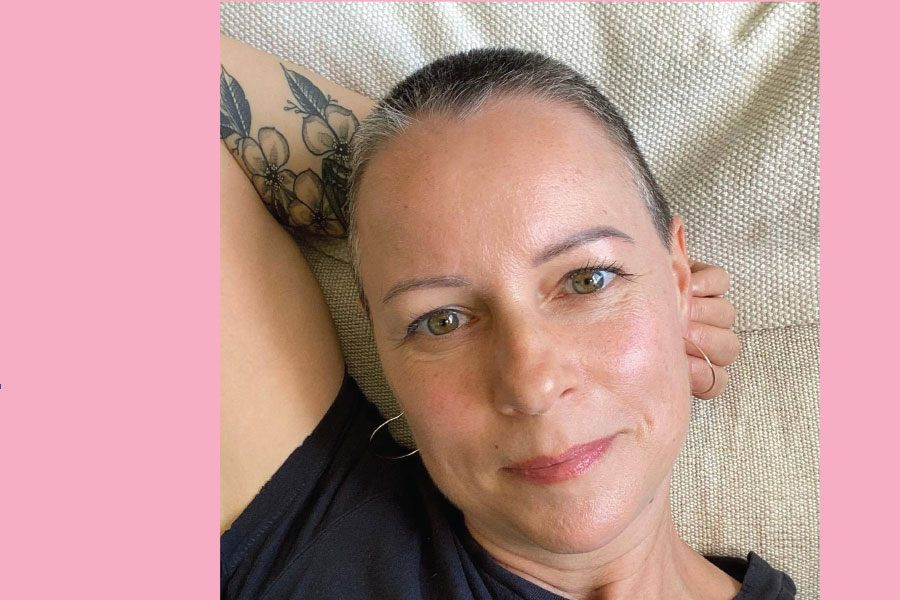Listen to Your Body

Brande Plotnick has always been in close touch with her wellness. Her relationship with her body has consistently been one defined by care and respect—for years, she prioritized staying active, eating healthy and getting her routine medical screenings.
But if there’s one thing that can jeopardize a bond that strong, it’s a breast cancer diagnosis. And, in May 2021, when an MRI picked up a five-millimeter lump in her left breast, Plotnick knew that her relationship with her body would be put to the test.But she didn’t realize that bond would only get stronger.
From the outset, Plotnick’s diagnosis—intraductal carcinoma, also known as stage zero breast cancer or DCIS—took something that she held tightly her whole life: control. But after turning to a friend for advice, she changed her perspective—and harnessed the control she did have. That advice: “Your body didn’t let you down. It’s because you are so focused on a healthy body and overall wellness that your body is going to carry you through this.”
Plotnick forged ahead, researching her options and making a treatment plan with her breast surgeon at Penn Medicine. One option was a lumpectomy and follow-up radiation therapy, as well as at least five years of tamoxifen to avoid recurrence of the same cancer.
“I had a lot of misgivings about taking tamoxifen and having radiation so close to my chest and my heart,” she says, “I really wanted to forgo that.” So, she listened to her body and decided on a mastectomy.” She also wanted to take the opportunity to get a complete pathology of all her breast tissue, which the mastectomy would give her.
Her doctor referred her to a plastic surgeon for reconstructive surgery, which Plotnick could only assume was her best option post-mastectomy. “That’s what people do,” she says. She soon discovered, however, she had yet another decision to make.
When Plotnick saw how many women choose to forgo reconstructive surgery, she realized she had reasons to choose that option, too. Avoiding multiple surgeries, a long recovery, “I wanted to be one and done,” she says.
Plotnick recalls that this choice to “live flat” (a term used among breast cancer survivors) wasn’t initially presented to her—it was something she had to research and find on her own.
“I think there is an assumption that most women are very emotionally attached to their breasts as part of their femininity,” she says. “There’s a lot of focus on: ‘How can I get through this illness and still look like the woman I was before?’”
Although Plotnick empathizes with women who are emotionally attached, she also says the decision was easy for her. “Even though it may not be the most conventional way, it may be right for some people, and it should be presented as an option.”
When her decisions were made and the surgery was done, Plotnick started to sense that the more significant change had been an intangible, personal one—the experience made her realize that her body didn’t need to conform to an imagined ideal. “Like many women, I used to be critical of how my body looked at times, “ she says. “I appreciated my health, but there was always an attribute or two I wanted to change.”
Now, she’s never felt more like herself: “When I got the mastectomy, and went flat, something changed in me. I started to feel like my body was perfect exactly the way it was.”
Cancer-free, she’s looking forward to reengaging with her body in the world.
“My body functions and it allows me to do all of the things in life that I want to do,” Plotnick says. “I want to have adventures, I want to travel, I want to stay fit and move my body, and all these things that bring me joy. My body can support that—and that’s why I love it.”
This is a paid partnership between Think Pink and Philadelphia Magazine